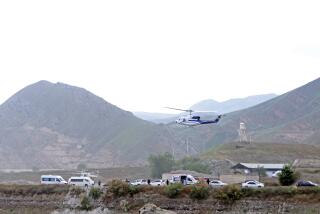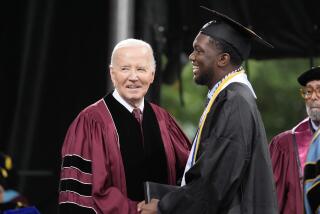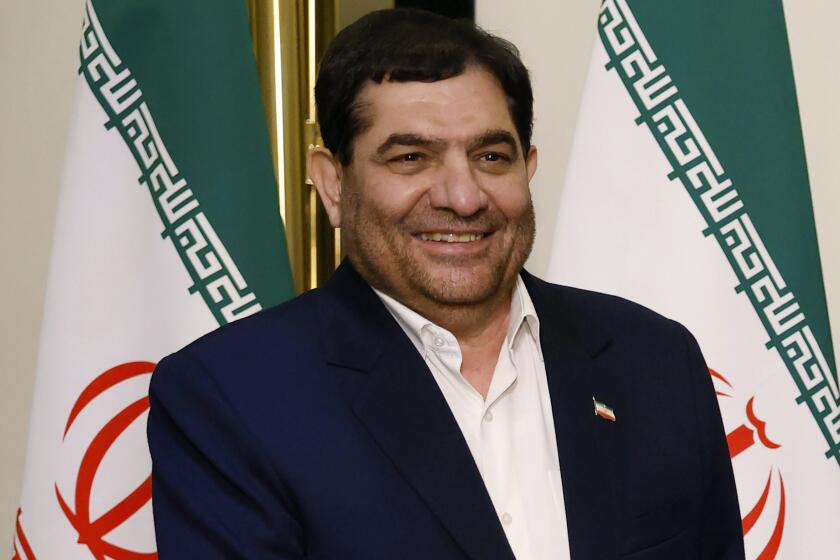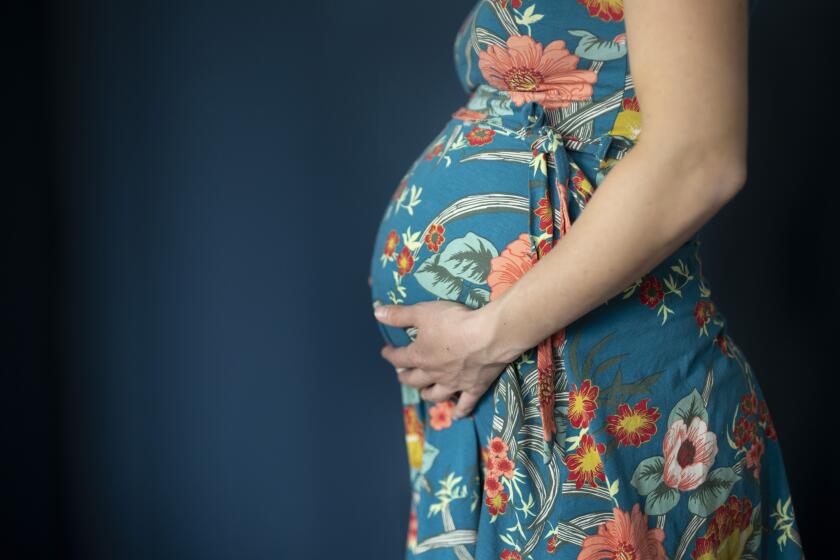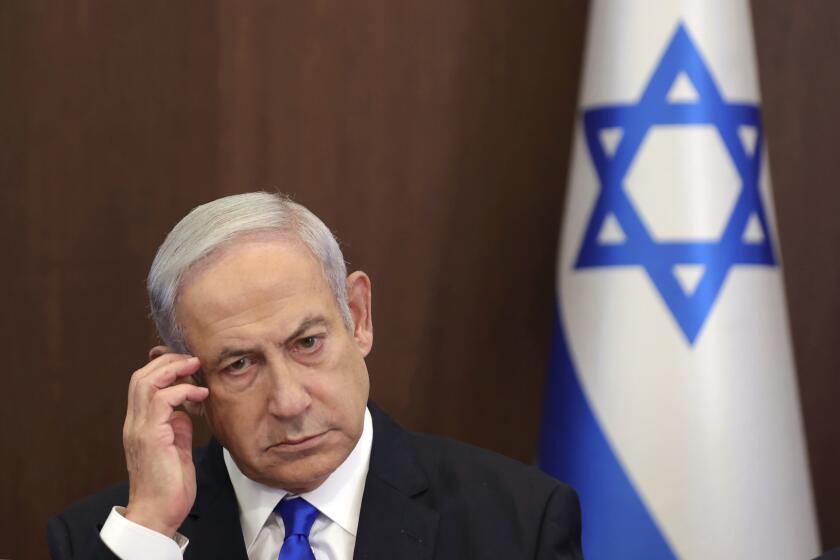BALKANS : At Seat of Serbian Pride, Residents Brace for Disaster : Kosovo’s outgunned Albanians and outnumbered Serbs fear an explosion that could draw Europe into war.
Every 15 minutes or so, an explosion rocks this capital of Kosovo province, startling both Serbs and ethnic Albanians nervously awaiting the outbreak of war.
Kosovo Albanians who have been living under Serb-imposed martial law for more than four years claim that the erratic explosions are the work of Serb nationalist paramilitary forces trying to provoke unrest in this most dangerous of ethnic flash points.
Local Serbian officials have insisted to European monitors that the explosions are nothing to be concerned about, claiming that the nerve-shattering jolts of varying location and intensity are caused by workers blasting rock at a nearby quarry.
Whatever the source, the explosions have added to the tensions in Kosovo and provided frequent reminders to the province’s 2 million people that their lives hang in the balance if the Balkan war spreads here.
Yet the outgunned Albanians, who make up 90% of Kosovo’s people, seem confident that the world will be more willing to come to their defense than it was in Bosnia-Herzegovina, where Serbian aggression against Muslim Slavs has gone unchecked for 15 months.
Armed with little more than the conviction that geography favors them, Kosovo’s Albanians point to the wider European consequences of war in their tiny province.
“Everyone is now aware of the fact that if something starts here, it will definitely involve Albania, making it an international war,” said Shaqir Shaqiri, an Albanian literature professor and former political prisoner. “Forty percent of Macedonia is also ethnic Albanian, and they won’t just stand idle and see us massacred. And if Albania and Macedonia are involved, you’ll see Turkey and Greece and Bulgaria involved. The Balkans and all of Europe will blow up.”
It is this chain reaction of violence based on ethnic loyalties and historical bonds that could bring about the worst-case scenario in the roiling Balkans, ripping apart international borders and pitting NATO members Greece and Turkey against each other.
Because the stakes for Europe are so much higher than in Bosnia, where the arguments for Western intervention have been moral rather than strategic, the Albanians seem to be counting on help from foreign forces in the event of violent clashes with Serbian troops, who are already out in force in Kosovo.
Serbs revere Kosovo as the sacred heartland of their medieval kingdom, the relic of a glorious age that ended with defeat by the Ottoman Turks here in 1389. Fighting in the province could bring a flood of Serbian defenders to bolster the existing security forces.
The tense, four-year standoff that began after riots in March, 1989, has led to segregation of the heavily defended Serbian minority and the Albanian majority. Parallel societies have formed, with separate hospitals, schools, media and political parties, deepening the differences propelling secession and threatening war.
Whereas Albanian community leader Ibrahim Rugova and his widely supported Democratic League of Kosovo claim only to want independence and good ties with Albania and Serbia, some politicians have begun to advocate annexation to Albania.
“In Kosovo, 90% of the people are Albanian, and what would be more natural than for them to live in one state with their motherland?” asks Rexhep Qosja, head of the Institute of Albanology and an activist in the so-far muted push for a Greater Albania.
The Albanian people who lived together in compact and tradition-bound clans during centuries of Ottoman rule have been separated since the state of Albania was formed in 1921, leaving half of today’s 6 million Albanians living outside its borders.
It remains uncertain whether conflict in Kosovo will be stirred by intensifying Albanian separatism or a preemptive Serbian application of “ethnic cleansing.” But almost everyone here believes that confrontation is looming.
“It’s not that we didn’t feel it before, but we always thought it could be avoided,” medical student Ilirijana Gashi says of the mounting tension. “Now it feels likes it’s just a matter of time.”
Serbia’s Ethnic Flash Point
Serbs revere Kosovo Province as the sacred heartland of their medieval kingdom, the relic of a glorious age that ended with defeat by the Ottoman Turks in 1389. Any fighting in the province could be cast by Belgrade as a move toward secession by the Albanian majority, who make up 90% of the province’s 2 million people. An estimated 60,000 Yugoslav army soldiers, Serbian police and volunteer paramilitary forces are dispersed throughout the province to thwart the Albanian majority’s independence.
More to Read
Start your day right
Sign up for Essential California for news, features and recommendations from the L.A. Times and beyond in your inbox six days a week.
You may occasionally receive promotional content from the Los Angeles Times.
